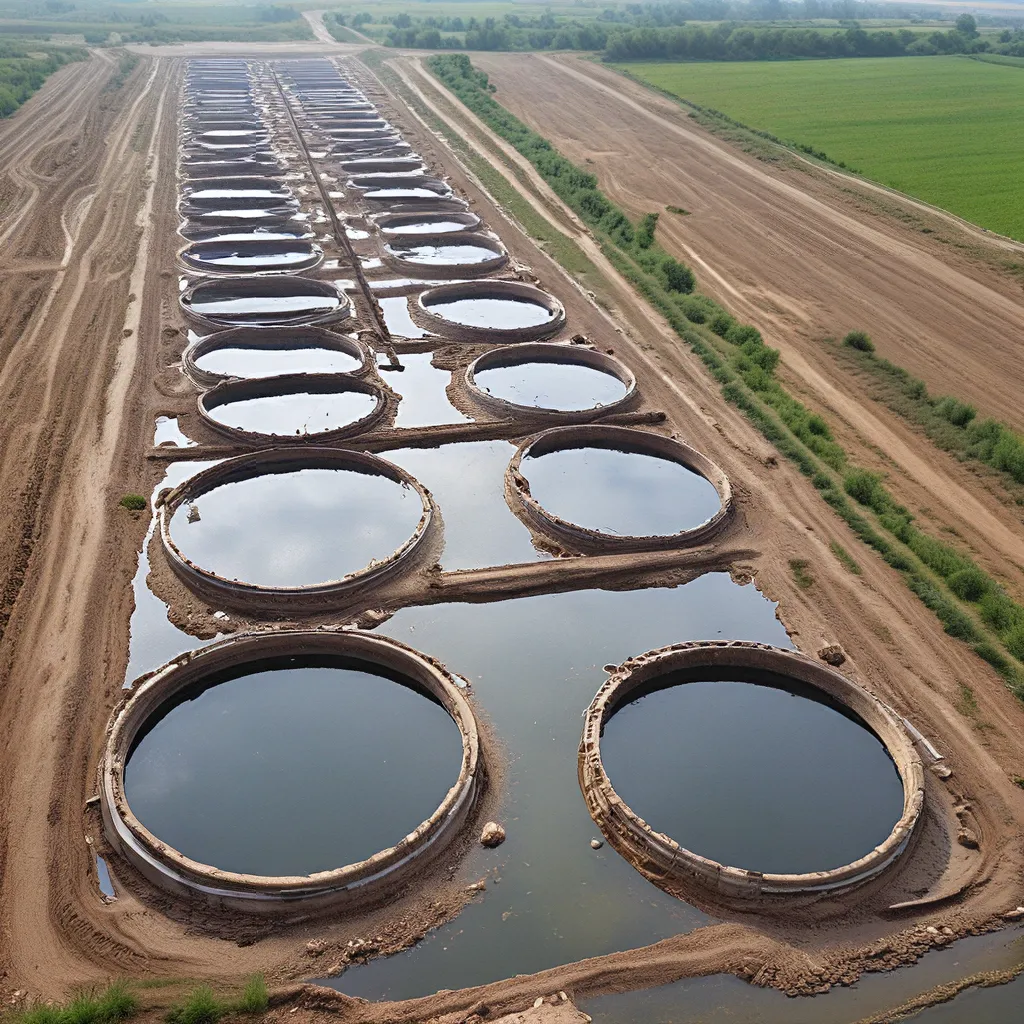
Unlocking the Power of Nature: Biotechnology’s Role in Sustainable Wastewater Solutions
As an environmental enthusiast, I’ve always been fascinated by the intricate processes that transform our used water into something clean and reusable. And in recent years, I’ve witnessed the extraordinary advancements in biotechnology that are revolutionizing the world of wastewater treatment.
It all started when I stumbled upon a research paper that highlighted the “importance of highly efficient wastewater treatment” in the face of growing global water crises. This piqued my curiosity, and I found myself diving deeper into the realm of environmental biotechnology and its innovative applications.
Harnessing Microbes: The Unseen Heroes of Wastewater Cleansing
One of the most captivating aspects of this field is the way it harnesses the power of nature to tackle our wastewater challenges. Microorganisms, like bacteria and fungi, have long been the unsung heroes in the world of wastewater treatment. These tiny life forms possess the remarkable ability to break down and remove a wide array of contaminants from the water we use.
Recent research has shown that by carefully selecting and cultivating specific microbial communities, we can significantly enhance the efficiency of wastewater treatment processes. It’s like having a team of specialized cleaners, each with their own unique skills, working together to tackle even the toughest stains.
Advancing Wastewater Treatment with Biotechnology
As I delved deeper into this field, I was amazed by the innovative approaches that researchers and engineers have developed to harness the power of biotechnology for wastewater treatment. From advanced bioreactor designs to cutting-edge genetic engineering, the possibilities are truly captivating.
One particularly intriguing area is the use of genetically modified microorganisms to target specific pollutants. Imagine bacteria that have been engineered to gobble up heavy metals or fungus that can break down complex pharmaceutical compounds. It’s like having a team of superhero microbes, each with their own specialized abilities.
Another exciting development is the integration of renewable energy sources into wastewater treatment facilities. By harnessing the power of solar, wind, or even the waste itself, these facilities are becoming more self-sustaining and reducing their environmental footprint.
Towards a Circular Economy: Wastewater as a Resource
But the true beauty of these biotechnology innovations lies in their potential to transform wastewater from a mere waste product into a valuable resource. Imagine a world where the water we’ve used is not just cleaned and discharged, but instead reclaimed, recycled, and reused in a continuous cycle.
Recent developments have shown that we can extract valuable nutrients, energy, and even clean water from the wastewater we produce. It’s like turning trash into treasure, and it’s all thanks to the incredible power of biotechnology.
Just the other day, I had the chance to attend a seminar on “Biotechnological Innovations in Waste Management” hosted by the US-ASEAN Center. The researchers and experts highlighted how these advancements are paving the way for a more sustainable and circular economy, where waste is no longer a burden but a valuable resource.
Embracing the Future of Wastewater Treatment
As I reflect on all of these exciting developments, I can’t help but feel a sense of optimism for the future of wastewater treatment. The integration of biotechnology is opening up a world of possibilities, and I’m eager to see how these innovations will continue to evolve and transform the way we manage our water resources.
At Alpha Wastewater Solutions, we are at the forefront of this technological revolution, constantly exploring new and innovative ways to tackle the challenges of wastewater management. Our team of experts is dedicated to staying on the cutting edge of environmental biotechnology, ensuring that our clients receive the most efficient and sustainable solutions.
So, if you’re as fascinated by this topic as I am, I encourage you to keep an eye on the latest advancements in the field. Who knows what wonders the future may hold? The possibilities are truly limitless when we harness the power of nature and the ingenuity of human innovation.